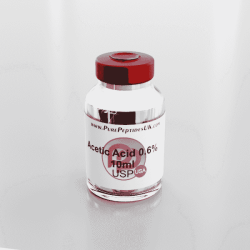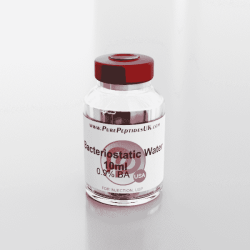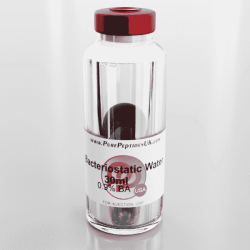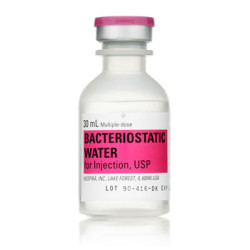Reconstitution
Similar to Ethanol and water, Acetic Acid is a protic (polar) solvent. This means that it dissolves both polar compounds, like salts and sugars, but also non-polar compounds, such as oils.Peptide solubility characteristics vary strongly from one peptide to another. Residues such as Ala, Cys, Ile, Le..
£11.99
Ex Tax:£9.99
BACTERIOSTATIC WATER - 10ml
Due to the continuing shortage of Hospira products, we are now stocking unbranded Bacteriostatic Water. This product has been produced for us in a sterile packing facility in the UK, using pharmaceutical grade materials.
DESCRIPTION
Bacteriostatic Water is a ster..
£7.50
Ex Tax:£6.25
BACTERIOSTATIC WATER - 30ml
Due to the continuing shortage of Hospira products, we are now stocking unbranded Bacteriostatic Water. This product has been produced for us in a sterile packing facility in the UK, using pharmaceutical grade materials.
DESCRIPTION
Due to the continuing shortage..
£14.99
Ex Tax:£12.49
Mixing Solution - Genuine Hospira Bacteriostatic Water - 30ml
Yet again, there is a worldwide shortage of Hospira Bacteriostatic Water. We have managed to secure a supply, but unfortunately the wholesale prices have rocketed and we have to reflect this . Hopefully sanity will return o..
£25.50
Ex Tax:£21.25
Showing 1 to 4 of 4 (1 Pages)

-250x250.png)

-250x250.png)

-250x250.png)

